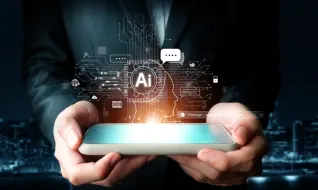In the fast-evolving legal industry, Continuing Legal Education (CLE) is more critical than ever. With new laws, regulations, and technological advancements constantly emerging, lawyers must stay up to date to provide the best possible service to their clients. CLE technology is revolutionizing the way legal professionals earn credits, gain knowledge, and engage with educational content.
From AI-driven learning platforms to immersive virtual reality training, innovative technologies are transforming CLE, making it more accessible, engaging, and efficient. In this article, we’ll explore the key trends shaping the future of CLE technology and how they are revolutionizing the legal education landscape.
1. AI-Powered Personalized Learning
One of the most significant advancements in CLE technology is the integration of artificial intelligence (AI). AI is making legal education more personalized and adaptive, ensuring that each lawyer receives a tailored learning experience.
How AI is Transforming CLE:
- Smart Course Recommendations: AI algorithms analyze a lawyer’s practice area, interests, and past courses to suggest relevant CLE content.
- Adaptive Learning: AI adjusts the difficulty level and pace of lessons based on the user’s progress and comprehension.
- Automated Content Updates: AI continuously scans legal databases to identify recent case law, legislative changes, and regulatory updates, ensuring that CLE materials remain current.
With AI-driven CLE platforms, lawyers no longer need to sift through irrelevant content—they can focus on learning what matters most to their practice.
2. Virtual and Augmented Reality (VR/AR) for Immersive Training
The legal profession is traditionally text-heavy, but VR and AR are introducing a new level of interactive learning. These technologies are particularly useful for trial lawyers, mediators, and negotiators who need hands-on experience.
Applications of VR/AR in CLE:
- Virtual Courtroom Simulations: Lawyers can practice presenting arguments, cross-examining witnesses, and responding to judges in a realistic virtual environment.
- Augmented Reality Legal Research: AR overlays key case details, statutes, and annotations onto physical legal documents, making research more intuitive and interactive.
- Negotiation Training: Attorneys can engage in real-time simulated negotiations with AI-driven avatars that react dynamically to their strategies.
By making CLE experiential and engaging, VR and AR help lawyers retain knowledge more effectively than traditional lecture-based formats.
3. On-Demand and Microlearning Formats
Legal professionals often struggle to balance busy schedules with ongoing education. The rise of on-demand and microlearning CLE formats is addressing this challenge, making learning more flexible and accessible.
Key Features of On-Demand CLE:
- Self-Paced Learning: Lawyers can complete courses whenever and wherever it fits their schedule.
- Bite-Sized Modules: Short, focused lessons (5-15 minutes) allow lawyers to quickly grasp key concepts without lengthy time commitments.
- Mobile Learning Apps: Many CLE providers now offer mobile apps, enabling legal professionals to learn on the go.
By moving away from rigid, in-person seminars, on-demand CLE makes it easier for lawyers to stay compliant while maintaining their productivity.
4. Interactive Webinars and AI-Enhanced Live CLE Events
While on-demand learning is gaining popularity, live CLE sessions remain crucial for interactive discussions, networking, and real-time Q&A. However, traditional webinars are evolving with the help of AI and automation.
Innovations in Live CLE:
- AI-Powered Transcriptions & Summaries: Advanced speech recognition tools provide real-time transcripts, making it easier for attendees to follow along and revisit key points later.
- Interactive Polls & Gamification: Live CLE sessions now incorporate quizzes, polls, and competitive elements to keep participants engaged.
- Virtual Networking & AI Matchmaking: AI helps lawyers connect with peers based on shared interests and practice areas during online CLE events.
These features enhance engagement, making online CLE more than just a passive listening experience.
5. Blockchain for CLE Credentialing and Compliance
Ensuring CLE compliance is a significant challenge for attorneys and law firms. Blockchain technology is emerging as a solution by securely recording CLE credits, certifications, and attendance records in a transparent and tamper-proof system.
Benefits of Blockchain for CLE:
- Instant Verification: Attorneys can easily prove their CLE compliance with blockchain-verified certificates.
- Reduced Administrative Burden: Law firms and regulatory bodies can automate CLE tracking, reducing paperwork and manual reporting.
- Fraud Prevention: Blockchain ensures that CLE credits cannot be altered or forged, providing greater trust and security in legal education records.
As blockchain adoption increases, CLE credentialing will become more streamlined and trustworthy for attorneys and licensing authorities alike.
6. Gamification and AI-Powered Assessments
Traditional CLE formats can sometimes feel tedious and uninspiring. Gamification—the use of game-like elements in education—is making CLE more engaging and interactive.
How Gamification Enhances CLE:
- Point-Based Progress Tracking: Lawyers earn points for completing lessons, answering questions, and participating in discussions.
- AI-Driven Adaptive Quizzing: AI customizes assessments based on individual strengths and weaknesses, ensuring meaningful learning experiences.
- Leaderboard & Badges: Competitive elements motivate attorneys to stay engaged and complete their CLE requirements efficiently.
By adding a sense of achievement and interactivity, gamification makes CLE feel less like a chore and more like an enjoyable learning journey.
The Future is Here: Embracing Tech-Driven CLE
The future of CLE technology is transforming legal education into a more interactive, accessible, and personalized experience. As AI, VR, blockchain, and gamification continue to evolve, CLE will no longer be just about fulfilling credit requirements—it will become an essential tool for staying ahead in the legal industry.
For attorneys, law firms, and CLE providers, adapting to these innovations will be crucial in maintaining competitive advantage and ensuring continuous professional growth. Whether you’re a legal professional seeking smarter, more efficient learning options or a CLE provider looking to enhance your educational offerings, embracing these emerging technologies will be key to success in the modern legal landscape.



